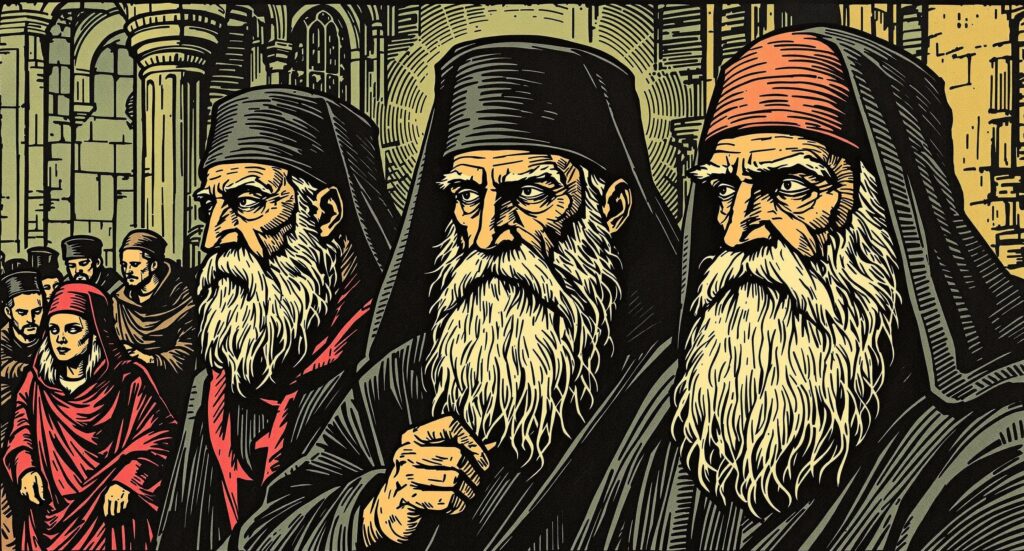In this chapter, Zarathustra encounters a group of priests. He instructs his disciples to pass by them silently and without drawing their swords, despite the priests being their enemies. Acknowledging that some priests are heroes who have suffered extensively, Zarathustra notes that their excessive suffering has led them to inflict suffering upon others. He expresses a sense of kinship, wishing to see his own blood honored in theirs.
As they move past the priests, Zarathustra is overcome with pain and reflects deeply on their condition. He pities them, viewing them as prisoners and marked individuals ensnared by false values and delusional words imposed by their so-called redeemer. This redeemer, who was meant to liberate them, has instead bound them with misconceptions. Zarathustra longs for someone who could free them from this enslavement.

I feel sorry for these priests. They also go against my taste; but that is the least of my troubles since I have been among humans. But I suffer and have suffered with them: they are prisoners to me and marked ones. The one they call Savior bound them in chains.
He likens the priests’ situation to mariners who believe they’ve landed on an island, only to find it’s a sleeping monster—symbolizing the dormant dangers of false values and illusions. These deceptive values are the worst monsters for mortals, lying in wait until they awaken to consume those who have built upon them.
Critiquing their places of worship, Zarathustra describes the priests’ churches as sweet-smelling caves with tainted light and stagnant air that stifles the soul’s ascent. Their faith demands penitence on one’s knees, promoting humility through self-deprecation. He prefers shamelessness over the distorted expressions of shame and devotion he observes in them. Zarathustra questions the origins of these oppressive structures, suggesting they were built by those ashamed of the open sky.
Zarathustra observes that the priests have named God as that which opposes and afflicts them, displaying a heroic aspect in their worship. However, their love for God manifests in the crucifixion of man, and their teachings carry the scent of mortuaries. Those who live near them dwell beside dark ponds from which melancholic songs emerge.
Zarathustra yearns for the priests to sing better songs so he might believe in their redeemer, desiring disciples who appear truly liberated. He wishes to see them in their natural state, asserting that only beauty should preach penance. He doubts that their concealed sorrow can persuade anyone. He critiques their redeemers as not originating from freedom or the zenith of liberation, nor having walked the paths of true knowledge. Their spirits were fragmented, filled with delusions they labeled as God.
Their excessive compassion drowned their intellect, and in their swelling pity, folly surfaced. They zealously guided their flock across narrow bridges, as if only one path led to the future, revealing themselves to be sheep as much as shepherds. Zarathustra remarks that while these leaders had broad souls, their minds were limited.
They marked their paths with blood, mistakenly believing that truth is validated through sacrifice. However, Zarathustra argues that blood is the poorest witness to truth, as it taints pure teachings with delusion and incites hatred. He questions the validity of suffering for one’s beliefs, suggesting that such acts merely reflect personal fervor rather than universal truth.
Having seen both the greatest and the smallest of humans, Zarathustra finds them remarkably similar—emphasizing that even the greatest remain “all too human”.
